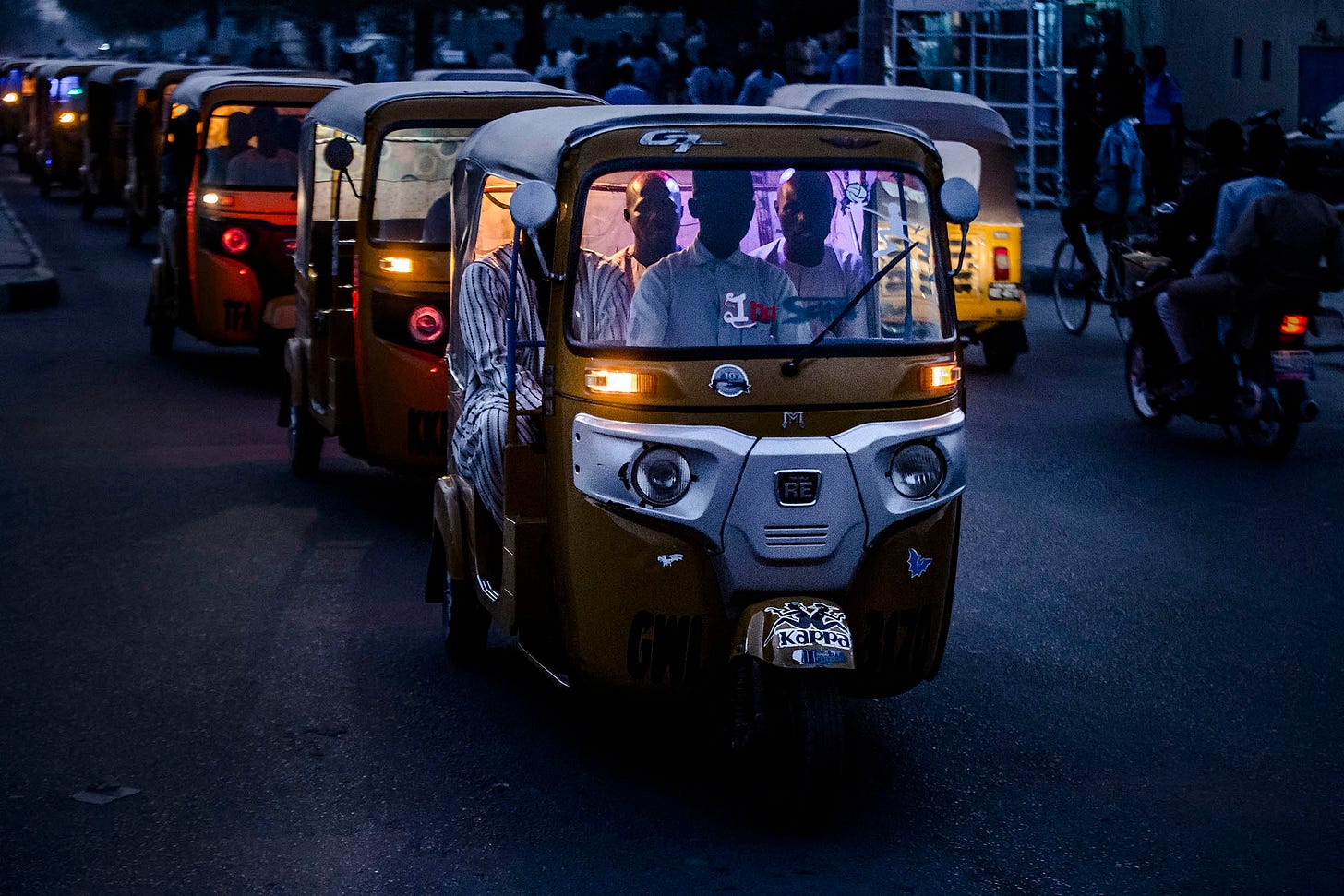The road to Lagos’ climate-friendly future has potholes
Some keke drivers find relief in compressed natural gas. For others it’s more of a bellyache.
Adio John in Lagos
The keke tricycles that buzz on the streets of Lagos have been looking a little different of late. Underneath the operator’s seat, where a tool box once sat, a gas cylinder now rests. Many have responded to a push backed by President Bola Tinubu to switch to compressed natural gas, a fuel that does less to drive the climate crisis than petrol and diesel – and is cheaper at the pump.
Price, more than concern for the climate, has been the major driver for switchers. Petrol now retails at around 960 naira ($0.60) per litre – nearly triple what it was before May 2023 when the Nigerian government stopped subsidising pump prices for refined fossil fuels.
“I used to spend nearly everything I made on petrol. Now I take something home,” said Obawunmi Oladele who switched to a natural gas-powered tricycle four months ago. He got it through the national association of tricycle owners and operators. “With ₦1,600 ($1), I can fill the tank and work all day,” said Yusuf Akinpelu, another operator.
But there’s a catch: Lagos has just only a handful of natural gas filling stations and given its infamous traffic jams, keke drivers spend hours just getting to the nearest station. “It’s stressful. We’re losing hours we should be working,” said Kunle, who asked to be identified only by his f irst name. He said that on some days, he spends four hours just getting to a station and lining up to refuel.
Government restrictions keep keke operators out of the central business areas. They operate on the outskirts of Lagos, in suburbs like Ipaja, Abule-Egba and Alagbado. The Agidingbi station located in Ikeja, the state capital, is 17km away from Alagbado. Even in good traffic – and that is hardly ever a thing in Lagos – it would take nearly 40 minutes to go between the two. “The distance and the queues are killing us,” said Oladele.
As more keke powered by natural gas hit the roads, long queues at the two gas stations are becoming routine.
The federal government has said it is aware of the challenge and plans to build more stations through its presidential natural gas initiative.
Tinubu launched the initiative in 2023, to provide “succour to Nigerians” who were reeling from soaring fuel prices after he removed subsidies. It intends to convert 200,000 tricycles and buses to natural gas by 2027, a goal that requires $250-million invested in related infrastructure.
His administration gave itself until the end of 2024 to pilot the switch operation on a smaller budget of $24-million. But people who switched immediately found that they needed the big-budget infrastructure.
Then there’s the ownership issue.
Most operators don’t own tricycles and instead rent one from the association.
“We pay ₦23,000 a day. Sometimes I take home just ₦2,000. It’s like I’m working for them,” one renter told The Continent. “The daily payments erase the benefit of cheap gas,” said another renter. “We’re working 12, 14 hours just to break even.”
Still, with inflation soaring and jobs scarce, few can walk away. “Man must work. We can only manage it and hope things get better,” said the second renter who spoke to The Continent. Neither wanted to be identified by their name.
Asked what getting better might look like, the renters looked to the government for a new kind of subsidy – underwriting the cost of the tricycles such that the keke owners and operators association can improve payment terms at which operators can buy their vehicles outright.
For now, the gas cylinder beneath the driver’s seat carries promise and struggle in equal measure.





